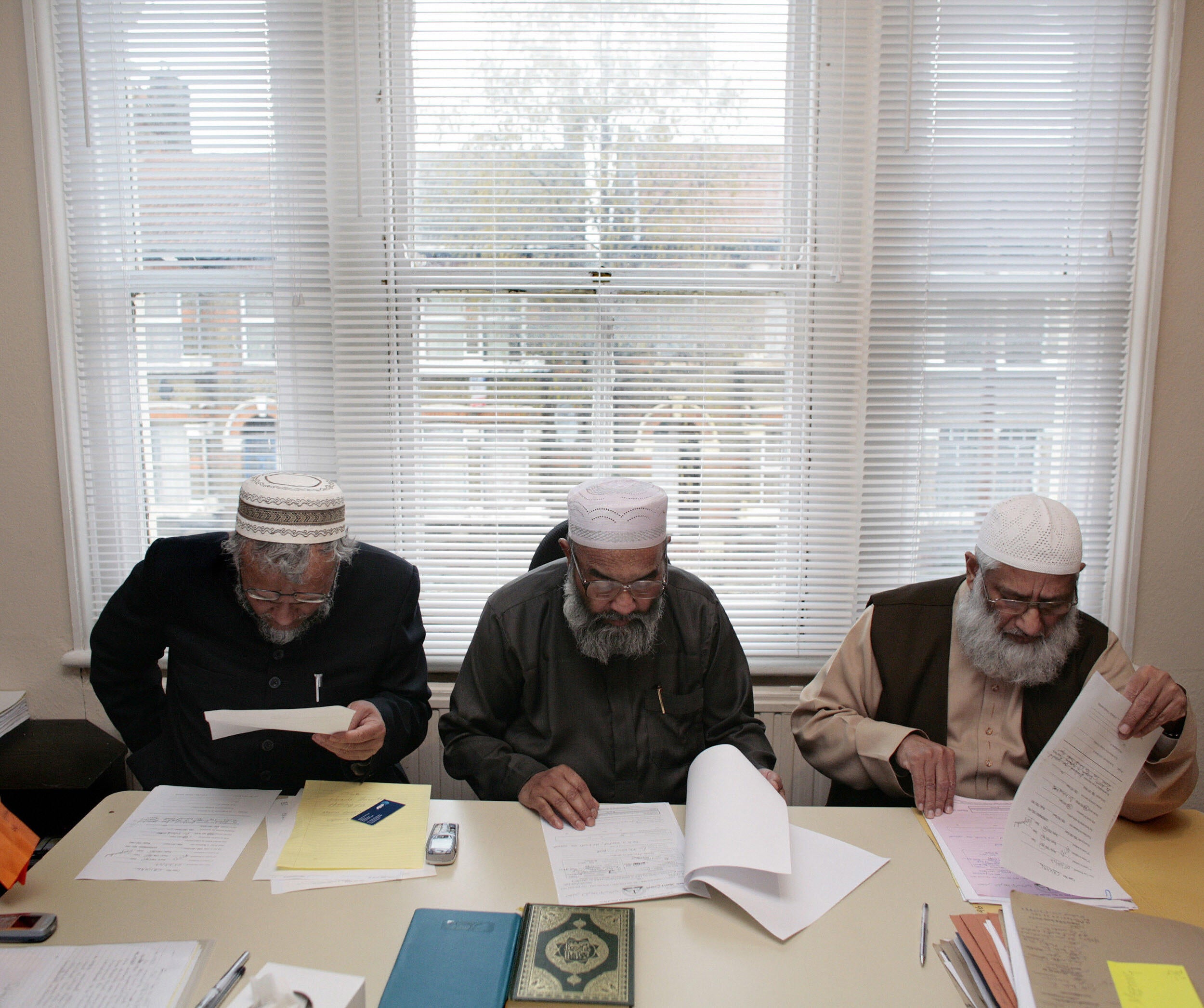Sharia marriages should be registered under UK law, says independent review
‘A greater number of women will have the full protection afforded to them in family law and they will face less discriminatory practices’

Your support helps us to tell the story
From reproductive rights to climate change to Big Tech, The Independent is on the ground when the story is developing. Whether it's investigating the financials of Elon Musk's pro-Trump PAC or producing our latest documentary, 'The A Word', which shines a light on the American women fighting for reproductive rights, we know how important it is to parse out the facts from the messaging.
At such a critical moment in US history, we need reporters on the ground. Your donation allows us to keep sending journalists to speak to both sides of the story.
The Independent is trusted by Americans across the entire political spectrum. And unlike many other quality news outlets, we choose not to lock Americans out of our reporting and analysis with paywalls. We believe quality journalism should be available to everyone, paid for by those who can afford it.
Your support makes all the difference.Muslims in the UK should undergo a civil marriage as well as a religious ceremony to make sure women are protected under the law, an independent review of sharia councils has said.
The measure was needed to lessen “discriminatory practices” in the councils, the report found, although it said that abolishing them was “not viable” and they were “fulfilling a need in some Muslim communities”.
Led by Professor Mona Siddiqui, the review was commissioned by Theresa May in 2016, when she was Home Secretary, to investigate whether sharia law was being misused.
A report on the review’s findings also recommended a public body be set up to regulate sharia councils, which deal with aspects of Islamic law. The Home Office immediately dismissed the suggestion.
The review found that the vast majority of people using sharia councils were women seeking an Islamic divorce, although very few council members were women.
Citing a number of examples of “bad practice”, the report said some had been inappropriately questioned on personal relationship matters.
Women had also been invited to make concessions to their husbands in order to secure a divorce.
In one instance a forced marriage victim was asked to attend a council at the same time as her family, according to the report.
However, it also flagged up positive practices, including the reporting of family violence to police and waiving of fees for those unable to pay.
Evidence heard by the review indicated the proportion of Muslim couples who do not have a civil marriage was “high and increasing”.
The panel called for legislative changes that would mean civil marriages were conducted before or at the same time as the Islamic ceremony, bringing Islamic marriage in line with Christian and Jewish marriage in the eyes of the law.
“A significant reason many women go to sharia councils is that some Muslim couples are entering into an Islamic marriage but not civilly registering their marriage,” the report said. “This means that they are not entitled to a civil divorce and choose to formally end their marriage through the sharia councils.
“By linking Islamic marriage to civil marriage it ensures that a greater number of women will have the full protection afforded to them in family law and they will face less discriminatory practices.”
To implement the proposals, amendments would be made to the Marriage Act 1949 “so that the celebrant of any marriage, including Islamic marriages, would face penalties should they fail to ensure the marriage is also civilly registered”.
“This would make it a legal requirement for Muslim couples to civilly register their marriage before or at the same time as their Islamic ceremony.”
Chair of the review, Professor Mona Siddiqui, said: “The review’s findings are based on the evidence we heard from an array of individuals and organisations. The sharia councils and women’s groups we have spoken to have expressed the view that some regulation of sharia councils is both wanted and needed.
“We have balanced their concerns with the recommendation of civil registration of marriages.”
Qari Asim, imam at Leeds Mosque, who advised the independent review, told The Independent some women felt they needed the “religious closure” brought by sharia councils.
“People would have suffered”, especially women, had the review recommended sharia councils be abolished, because some would struggle to exit unhappy marriages, Mr Asim said.
Asked about the Home Office’s dismissal of the review’s recommendation to introduce a new public regulator, Mr Asim said: “The government doesn’t disagree that there needs to be regulation, what we disagree on is how it does that regulation.”
One argument against creating a body regulating sharia councils was that it could “give legitimacy” to them.
“State-endorsed regulation sends the message that all sharia councils are an appropriate forum for resolution of family disputes,” he said. “The panel doesn’t want to make a parallel legal system.”
A spokesperson for the Home Office said: “We will consider carefully the review’s findings and its remaining recommendations.”
They added: “We will not be taking forward the review’s recommendation to regulate sharia councils. Sharia law has no jurisdiction in the UK and we would not facilitate or endorse regulation, which could present councils as an alternative to UK laws.
“In Britain we have a long tradition of freedom of worship and religious tolerance, where many people of different faiths follow religious codes and practices and benefit from their guidance. The Government has no intention of changing this position.”
Join our commenting forum
Join thought-provoking conversations, follow other Independent readers and see their replies
Comments